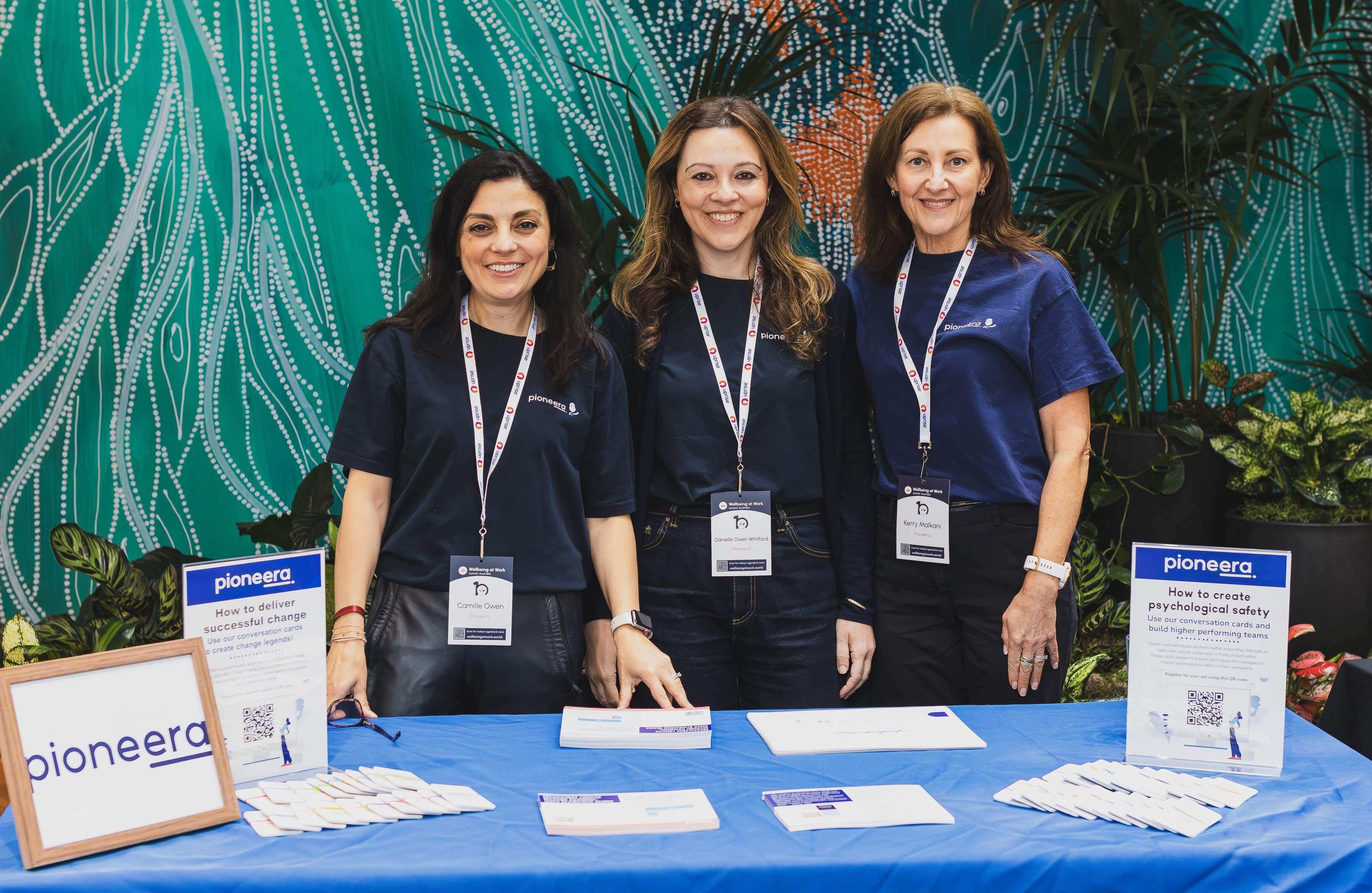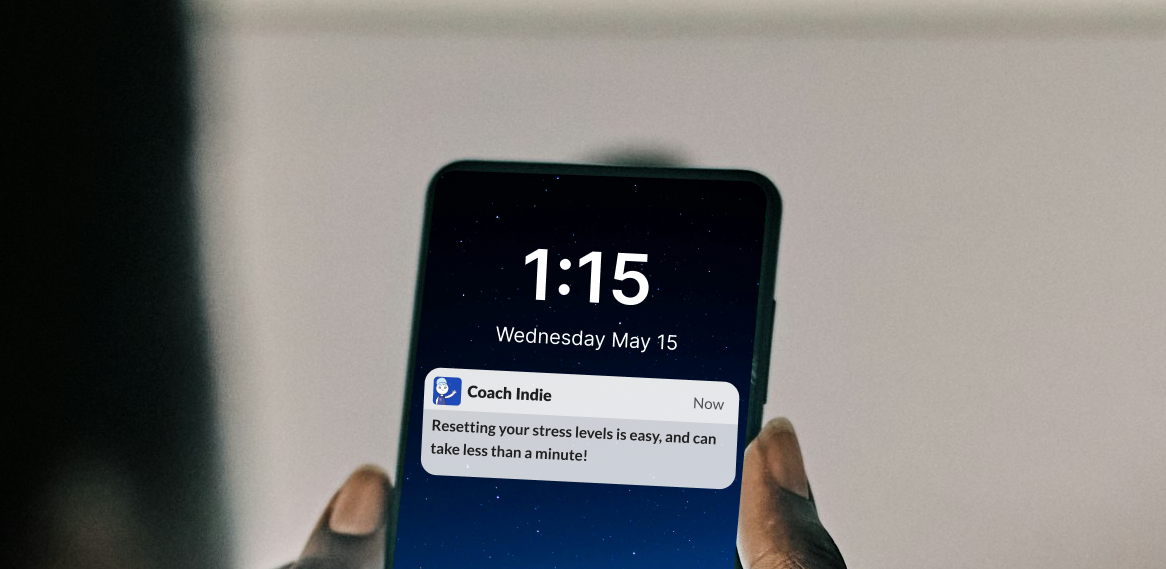Katie Parris is no stranger to adversity. Heading off on maternity leave in a highly demanding leadership position was always going to be tough. So was becoming a mum again after a six-year gap. Nonetheless, it was a very exciting time in her life - until 11 weeks postpartum, when she was diagnosed with breast cancer, and her world came crumbling down around her.
She is with us today to share her journey, what she’s learned about the incredible power of resilience, and the impact of transparency, trust and emotional intelligence to guide us through the darkest, most uncertain of times.
Katie, please share with us a bit more about how your fight began.
“At 11 weeks postpartum I was diagnosed with breast cancer at 36, where seemingly my whole world was to be ahead of me. Instead, I was left wondering whether I would be left in this world. Instead of focussing on flourishing the life of my newborn baby, I was left to focus on how to bring the true meaning of ‘agile’ to life.
“The fight began. I went on to undergo 14 rounds of chemotherapy, which isn’t unusual in the world of breast cancer. But what was unique is that I completed six rounds working full-time back in my Head-of role. Following this I went on to have surgery and 6 weeks of daily radiation - whilst focussing on a newborn baby, a six year old, a husband and a Head-of role with a team of nine.”
Being a leader, mother, wife, and fighting cancer all at the same time, you’re a lot of things to a lot of people. How did you find focus and stay positive? For your family? And your team?
“You put all your trust, and your life, in the hands of people you just met. You think it’s hard to give, but when you’re thrust into a situation like that, trust becomes the only thing you give. It was really important for my family because they also have to trust people to make the right decisions for us as a family and to get me through. That’s been hard for me along the journey.
“When it came to my team, initially, I shut down. This was before they even knew anything was happening. That was pretty hard, because that’s not the kind of leader I had been. I felt like I needed to be in the right headspace to have authentic and honest conversations with them.
“I wanted to be authentic with them, and not be forced to say I was ok when I really wasn't.”
“The first step to enable that was building a core team around me - medically, personally and professionally. There were some key people in the core team professionally that helped me along the way. I will never be more grateful to them. They understood the care I had for my team and the impact it would have on them. I still wanted to make sure they were ok.”
Can you talk to us on the challenges of maintaining your sense of self?
“I was pretty busy before, but when this was thrust upon me, I saw what a real juggle was. The pressure wasn’t from everyone else, but myself around always ‘being on’. I think the expectations we put on ourselves when we’re trying to juggle career, home-life, and the self, are actually not realistic. And even if they are, I question whether it’s actually right.
“It’s impossible to be ‘always on’. It dehumanises us, and doesn’t live up to my values around authenticity, honesty and leading by example.”
“When you’re ‘always on’, you have this sense of being invincible. That’s the image that leaders often want to portray - we don’t get stressed, we don’t let things get on top of us, and we can navigate anything. But it’s just not true. Behind every leader there’s a story - something they may have found difficult.
“I feel we’re missing an opportunity here, right? We can slow down to speed up, or walk away to come back refreshed. There’s nothing wrong with that.”
What role did mindset play in helping you overcome these seemingly insurmountable challenges?

Katie sharing with Pioneera’s Dane Alexander.
“I can’t place enough emphasis on mindset - through treatment, now, and as I continue on this journey.
“What really helped was a ritual I formed around treatment Fridays. I had chemo every Friday - 14 rounds. The first four were fortnightly and the rest were weekly. Before treatment, I’d go on a walk by myself, mentally preparing for what was about to take place. I found I talked a lot to myself. I even talked to the cancer, as crazy as that sounds.
“I would get really pumped up about it… well the PC version of what I would say to the cancer was: ‘I’m coming for you!’ I started to believe it. I would run really fast. There was something cathartic about it.
“I made that decision early on that I was going to run at the problem, not away from it.”
“After treatment, and the days following, I made a conscious effort to exercise and that was the sealing of: ‘I’ve come for you! I’ve hit you with the drug that will kill you! And now I’m going to keep moving forward!’
“I chose to look at things through a different perspective. You can’t ever say you’re positive through a cancer treatment or diagnosis… because the reality is, you’re just not. You work through the process and at some point you can see positive aspects through the journey, but it’s not a positive journey.
“Reframing for me was vital in giving myself permission to have darker days. But then give myself permission to get out of them.”
“I’m a very data-driven marketer. So when I was told the news, I wanted to know the numbers - percentages, likelihood etc. That’s how my brain works, but also that’s the power for how I reframed. I was never going to be able to reframe by smelling the roses and thinking it’s all going to be ok. I needed something factual from the science to help me navigate and reframe.”
At what point, and how, did you decide asking for help was a strength, not a weakness?
“Asking for help is not something I’ve always done, but the perspective and the mindset that I was in was that I can’t come at this thing if I don’t have the help I need. It’s not a solo effort, it’s a team.
“I decided very early to go back to work - when I was due back from maternity leave. I still had six weeks of chemo to go. And I still did my full-time job. After that I had surgery and six weeks of daily radiation. I made a conscious decision to work through it.
“I’m great at my job. I love the people. I love what I was doing. But it was also permission for me to have a break from cancer and being Katie at home, the sleepless nights, turning up to the school in a headpiece at pickup. I was Katie the professional.
“I was Katie the person who was more than capable of doing a really great job, regardless of whether she had hair or not.”
“The conversations I had with my line manager were all about ‘when I enter this door I am Katie the professional, and I don’t want to talk about cancer. I don’t want to even look like I have cancer. I just want to be Katie and do a stellar job.’ I wanted to control the narrative, not have cancer dictate it.”
Signs of chronic illness aren’t always visible, making it harder for people to relate to. Can you tell us about your experience with this?
“I think about my journey of chronic illness, and I’m probably in the toughest part right now. That’s probably because there’s still that constant reminder of cancer. My hair, for example. And it hits you at times when you least expect it.
“People can see my hair is growing back. I don’t look sick any more. I’m no longer late for meetings because I’ve finished my treatment. But surviving is the hardest part.
“For me, and many others, there’s a lot happening under a facade that everything is fine.”
“I think leaders, more so than ever, need to be in touch with that. There needs to be an understanding that not everyone is going to have the confidence or comfort to be able to talk to their leader about what is happening under the facade.
“It’s not necessarily a reflection on the leader, it could be reflective of the journey that person is going on. When you put that in a digital spin right now, it’s the Insta post vs reality. It’s the filter of ‘look at what I’m doing and how happy my life is’ vs ‘what my day-to-day actually looks like’.”
How are you these days?
“The journey’s still going. I’ve just passed one year since diagnosis. I’ve reached my first round of checkpoints, and I am extremely happy to say that I am cancer free. But there’s always that worry or fear of what’s lurking.
“The reality is, I have to find a way to move past that. I can’t run away from it, I’ve got to run at it.”
“For me to control that, I need to find ways to keep running at it and to keep telling it that I will come for it.”
What are your key takeaways from this experience?
1. Leading through uncertainty and adversity requires resilience
“Uncertainty can create concern. Adversity is concerning. Resilience is about a holistic approach.”
2. The sacrifice of feeling a need to be ‘always on’ can dehumanise us
“The key thing is around authenticity, and allowing yourself the space to take back that narrative of being dehumanised to humanised. Give yourself the permission to not be ‘always on’.”
3. The power of focus and mindset to achieve outcomes
“Without the right mindset, you can very quickly run away from reality. I’m really passionate about the point at which I decided to run at it, and keep running at it.”
4. Trusting the unknown and letting critical people in to build trust
“Letting people in when you go through something like this can be really hard. Emotionally, it’s always hard to be vulnerable to people in different spheres of life. My three circles of support were invaluable - medically, personally and professionally.”
5. Be kind to yourself
“Give yourself permission to do the things that enable you to be your best. It can be as simple as getting away from your screen to take a lunch break. Simple things can have the most impact, but can also be the most complex to crack.”
“Give yourself permission to do the things that enable you to be your best.”
This conversation was brought to you by Pioneera.






